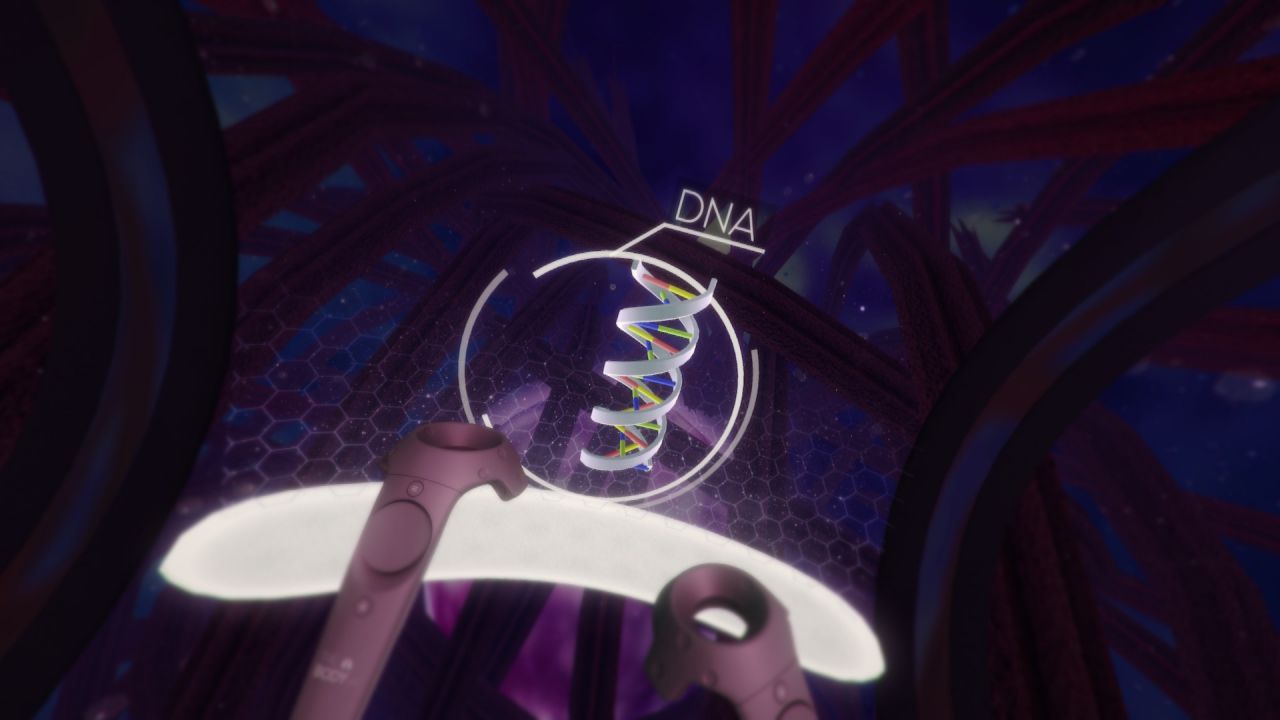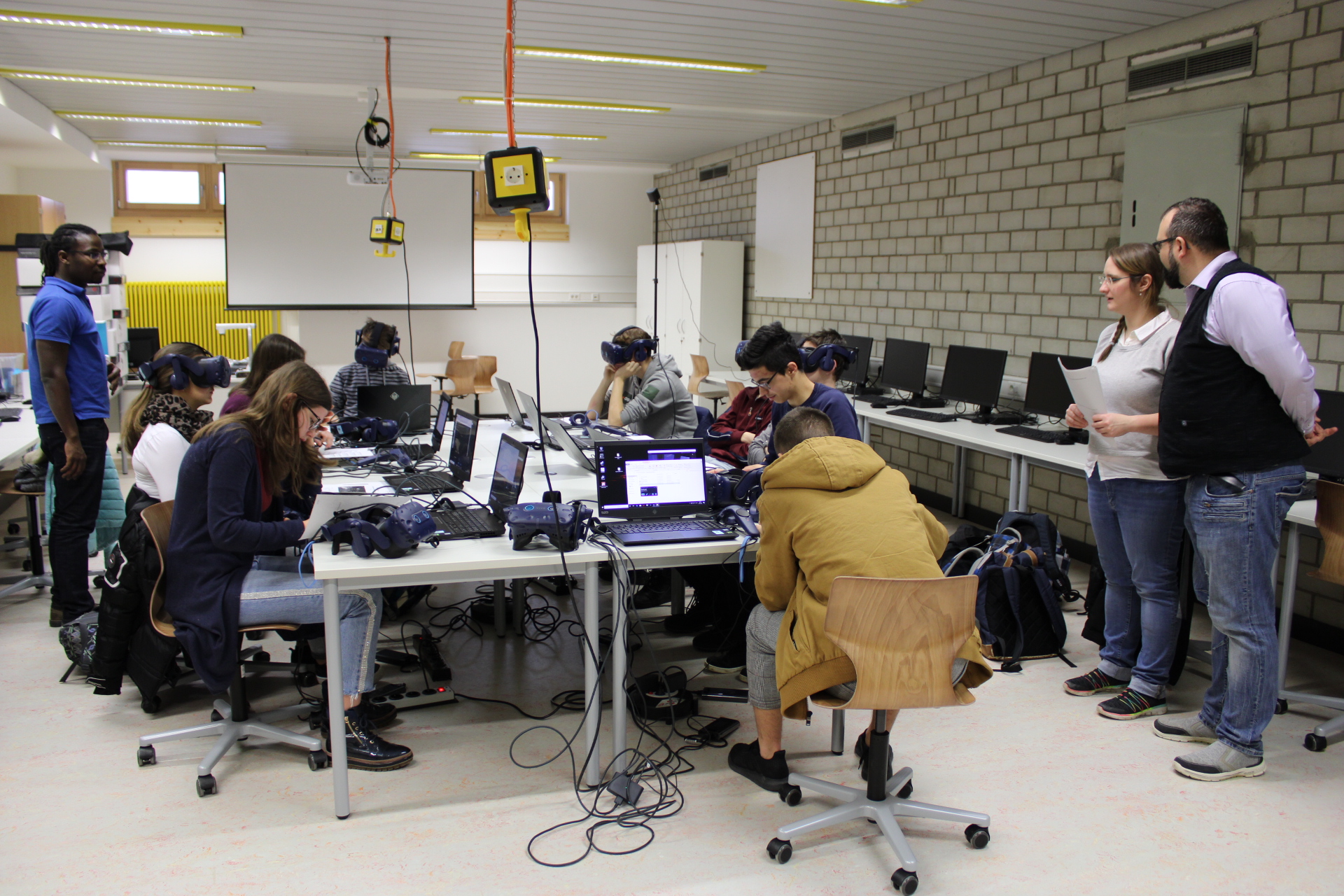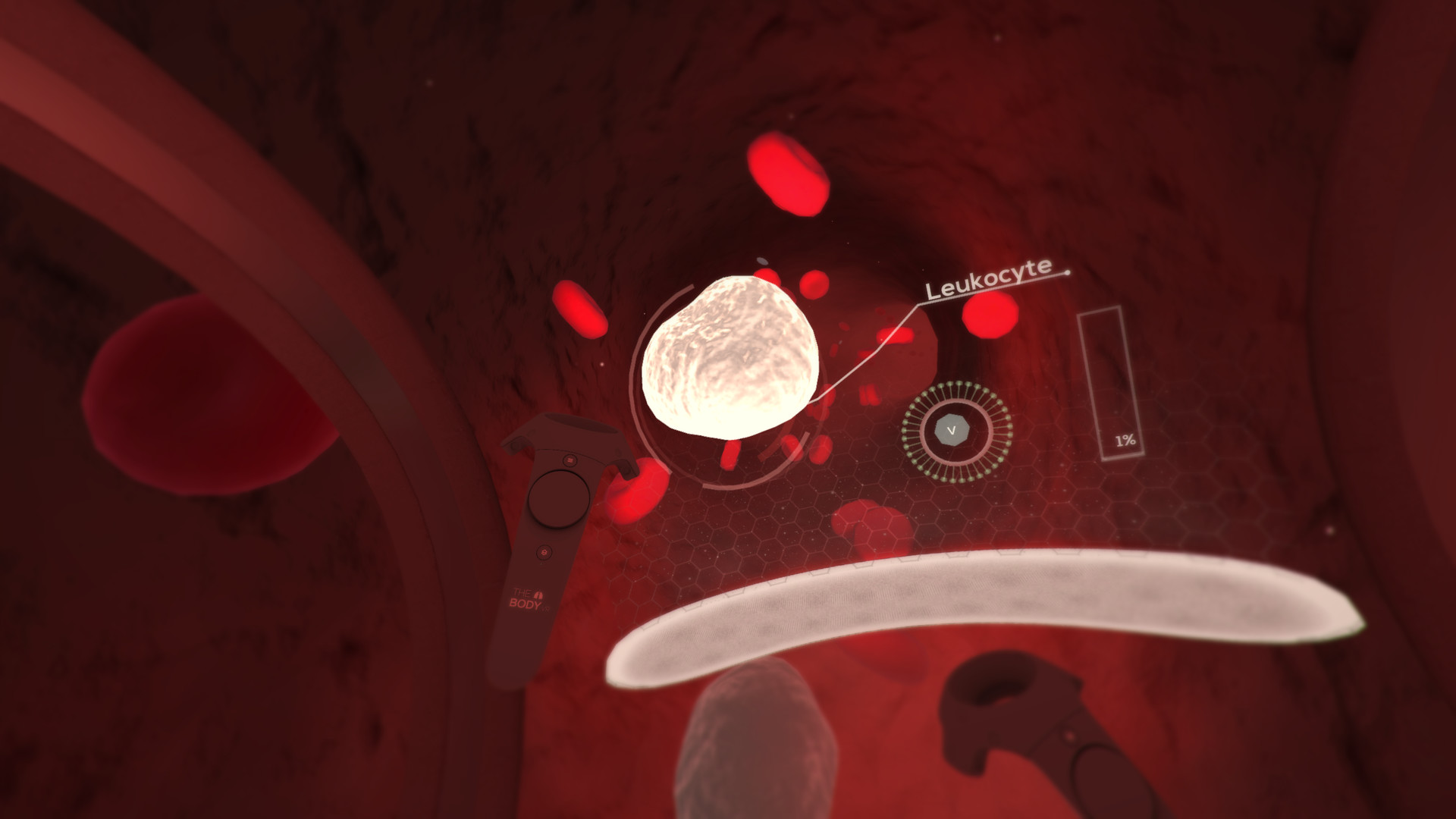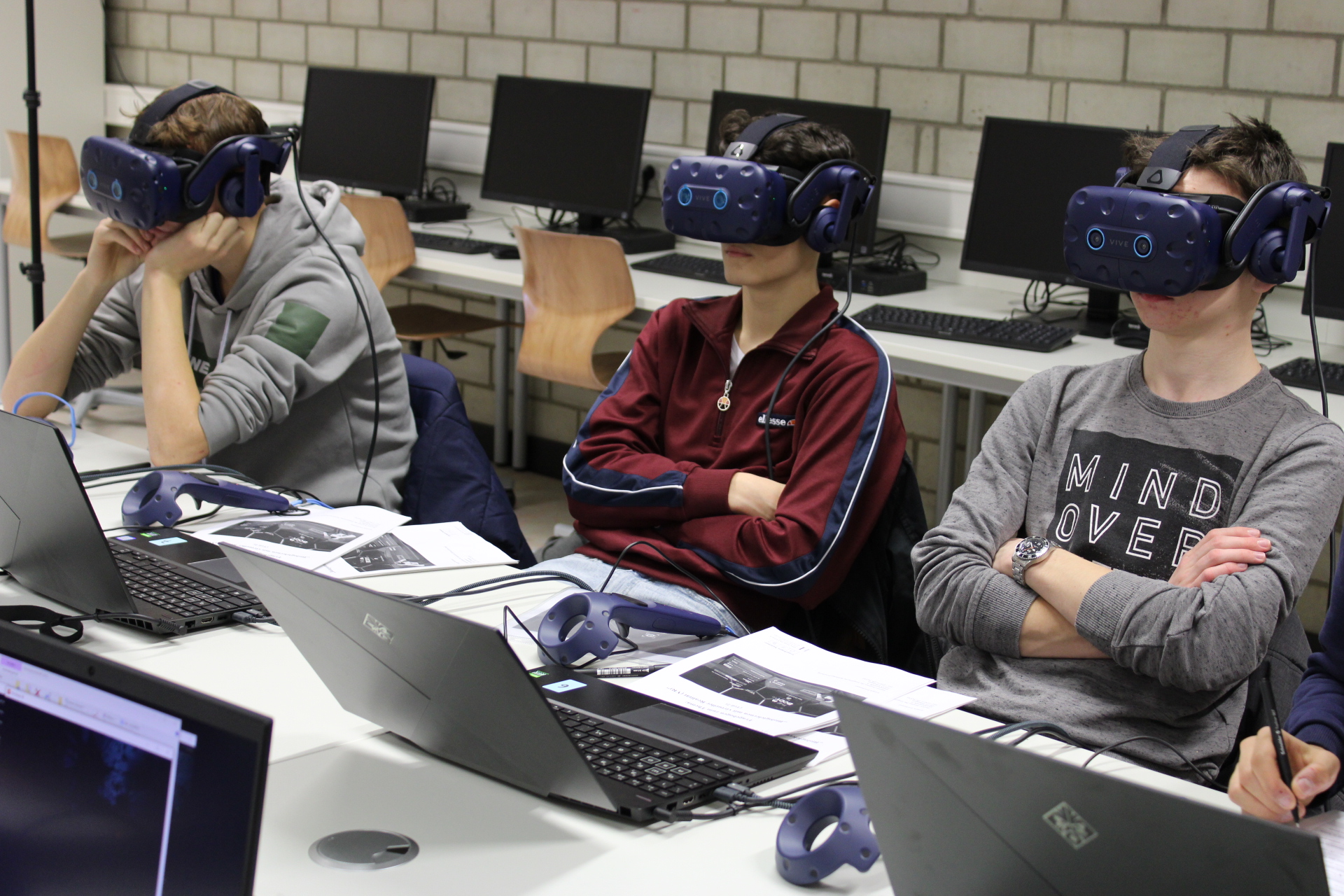Project description
In this project, 10th-grade students from different schools experienced a virtual journey through the human body and learn about human cells. This simulation enabled students to engage with lesson content through narration, visual presentations, and interaction with the virtual elements.
Before the lesson, one group of students received relevant information about VR’s usefulness for learning purposes. The other group did not receive such information. We used different methods (surveys in VR and on paper, a knowledge test, and students‘ eye movement parameters) to analyze how this approach affected students‘ learning outcomes.
But why virtual reality?
- VR enables us to render the impossible: students could „shrink“ themselves and travel inside the body.
- VR provides a unique way for educators to teach and for students to engage with the learning content.
- VR enables an integrated eye-tracking capacity through new HMD to assess how students explore the learning environment and process the lesson content.
So what´s new?
- We applied a well-known approach in motivation and education psychology (usefulness intervention) to enhance VR’s effectiveness in science education.
- We showed that this parsimonious approach significantly impacted students‘ cognitive processing of the lesson and learning outcomes
- We used students‘ eye-movements parameters to assess how they process the learning content in real-time.
Here you can see an impression of the VR simulation

Interested in first findings?
A manuscript titled „Enhancing the Effectiveness of Virtual Reality in Science Education Through an Experimental Intervention Involving Students‘ Perceived Usefulness of Virtual Reality „ will be soon submitted for the special issue on learning in immersive virtual reality of the journal: Technology, Mind, and Behavior .
Project team:
Core team at the HIB:
Joseph Ferdinand
Prof. Dr. Richard Göllner
Philipp Stark
Further contributors and collaborations:
Jens-Uwe Hahn, Stephan Soller
(Hochschule der Medien Stuttgart)
Hong Gao, Efe Bozkir
(Computer Science at the University of Tübingen)
More pictures:




